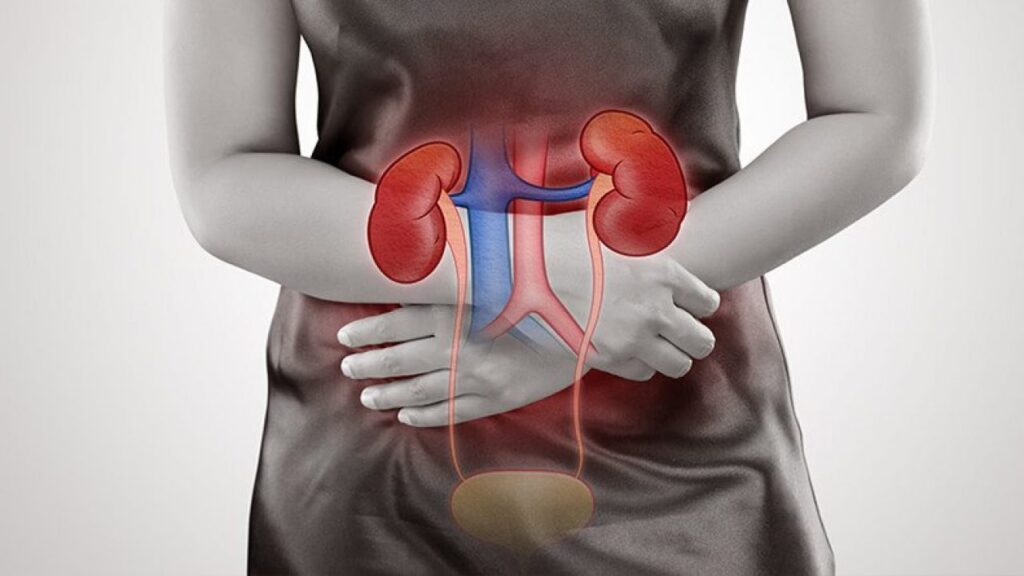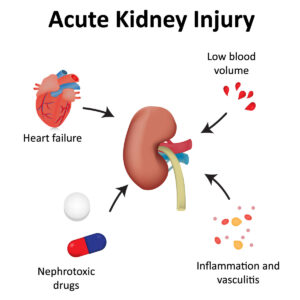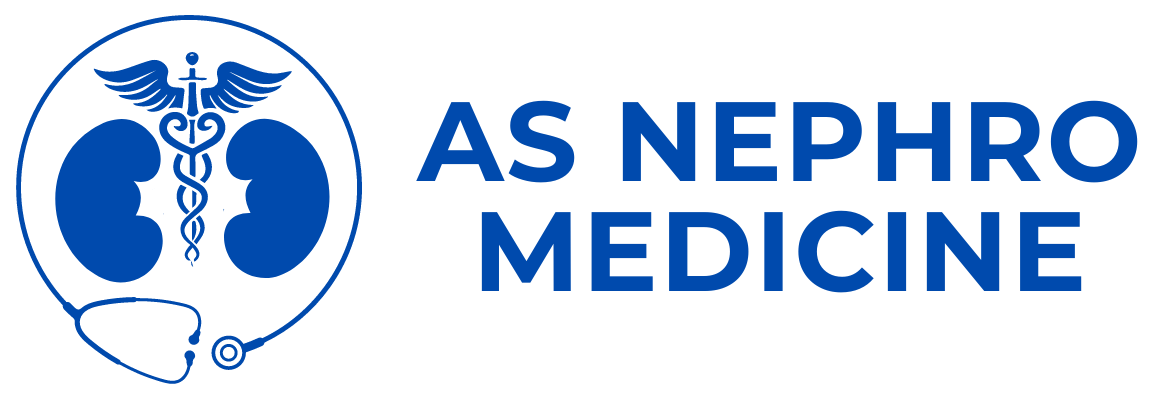

What is Acute Kidney Disease?
Acute kidney disease, also known as acute kidney injury (AKI), is a sudden and rapid loss of kidney function occurring within hours or days. It leads to the accumulation of waste products and fluid imbalances in the body, which can cause symptoms like reduced urine output, swelling, fatigue, and confusion.
AKI can be caused by factors such as reduced blood flow to the kidneys, direct damage to kidney tissues, or blockages in the urinary tract. Prompt diagnosis and treatment are essential to prevent severe complications and improve the chances of recovery.
Causes of Acute Kidney Failure
Acute kidney failure can occur when:
- You have a condition that slows blood flow to your kidneys
- You experience direct damage to your kidneys
- Your kidneys’ urine drainage tubes (ureters) become blocked and wastes can’t leave your body through your urine

Symptoms of Acute Kidney Failure

- Decreased urine output, although occasionally urine output remains normal
- Fluid retention, causing swelling in your legs, ankles or feet
- Shortness of breath
- Fatigue
- Confusion
- Nausea
- Weakness
- Irregular heartbeat
- Chest pain or pressure
- Seizures or coma in severe cases
FAQs
Diagnosis often involves blood tests to assess kidney function (creatinine and blood urea nitrogen levels), urine tests (to check for abnormalities), imaging tests (such as ultrasound or CT scan), and sometimes a kidney biopsy.
Treatment depends on the underlying cause and severity of AKI. It may involve addressing the underlying condition, managing complications like fluid overload or electrolyte imbalances, and sometimes dialysis to temporarily assist kidney function until they recover.
Prevention strategies include staying hydrated, avoiding medications that can harm the kidneys (unless prescribed and monitored by a healthcare provider), managing chronic conditions like diabetes and hypertension, and promptly treating infections.
No, AKI is a sudden and usually reversible loss of kidney function, whereas Chronic Kidney Disease (CKD) involves a gradual loss of kidney function over time and is typically irreversible.
The prognosis varies widely depending on the cause, severity, and promptness of treatment. Many cases of AKI can be reversed with appropriate treatment, while severe cases may lead to chronic kidney disease or require long-term dialysis.
